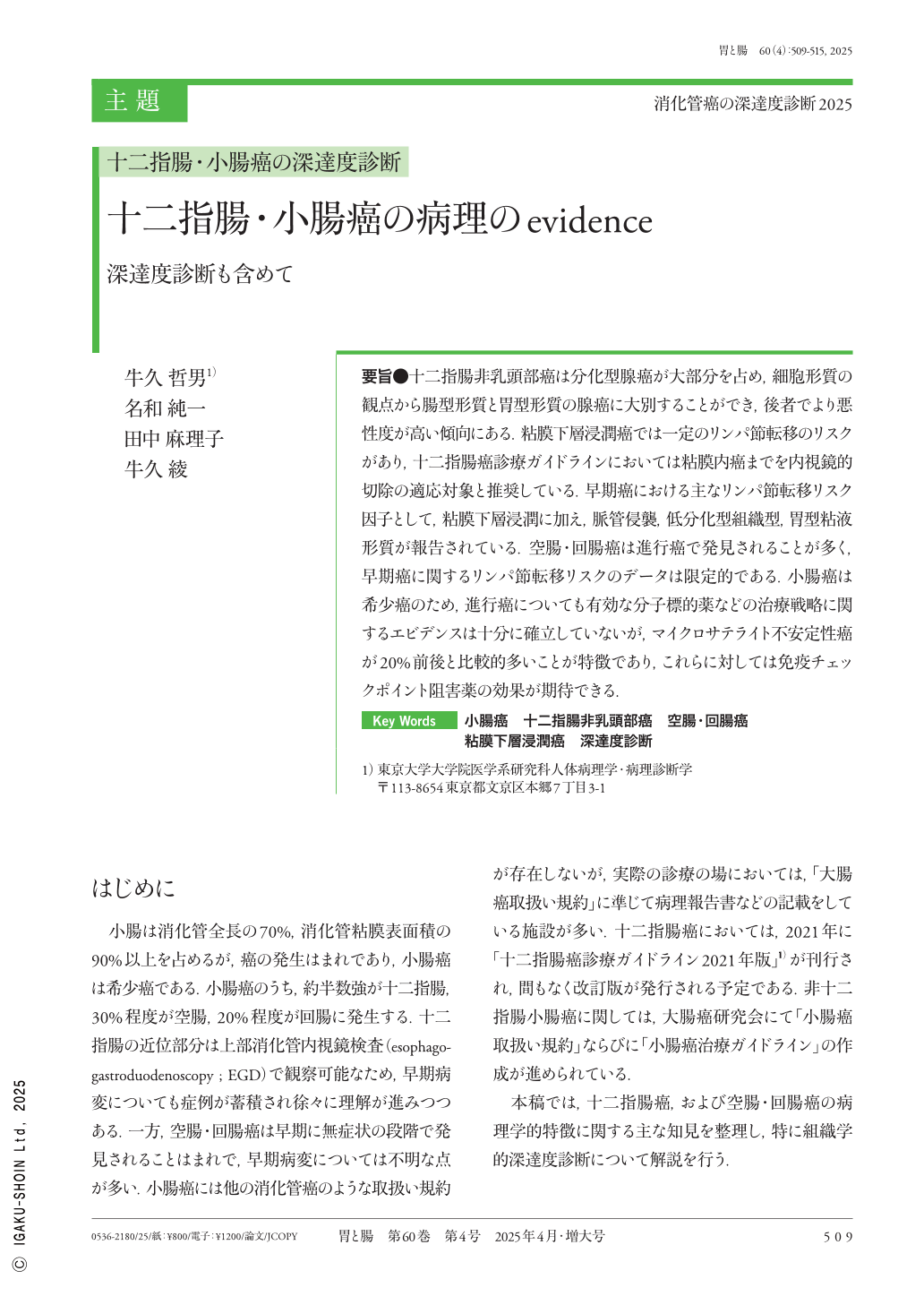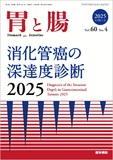Japanese
English
- 有料閲覧
- Abstract 文献概要
- 1ページ目 Look Inside
- 参考文献 Reference
要旨●十二指腸非乳頭部癌は分化型腺癌が大部分を占め,細胞形質の観点から腸型形質と胃型形質の腺癌に大別することができ,後者でより悪性度が高い傾向にある.粘膜下層浸潤癌では一定のリンパ節転移のリスクがあり,十二指腸癌診療ガイドラインにおいては粘膜内癌までを内視鏡的切除の適応対象と推奨している.早期癌における主なリンパ節転移リスク因子として,粘膜下層浸潤に加え,脈管侵襲,低分化型組織型,胃型粘液形質が報告されている.空腸・回腸癌は進行癌で発見されることが多く,早期癌に関するリンパ節転移リスクのデータは限定的である.小腸癌は希少癌のため,進行癌についても有効な分子標的薬などの治療戦略に関するエビデンスは十分に確立していないが,マイクロサテライト不安定性癌が20%前後と比較的多いことが特徴であり,これらに対しては免疫チェックポイント阻害薬の効果が期待できる.
Duodenal adenocarcinomas can be classified as intestinal- and gastric-type adenocarcinomas in terms of their cellular phenotype, with gastric-type adenocarcinomas being more malignant. Submucosal invasive carcinoma has a risk of lymph node metastasis. The duodenal cancer guidelines recommend endoscopic resection for intramucosal carcinoma only. In addition to submucosal invasion, vascular invasion, poorly differentiated histology, and gastric mucin phenotype are the major risk factors for lymph node metastasis in early-stage cancers. Jejunal and ileal cancers are often detected at advanced stages, and evidence on the risk of lymph node metastasis in early-stage cancers is limited. Owing to its rarity, there is insufficient evidence for the effective molecular targeted drugs for advanced cancers. However, microsatellite instability is a relatively common feature, accounting for approximately 20% of cancers, and immune checkpoint inhibitors are expected to be effective against these cancers.

Copyright © 2025, Igaku-Shoin Ltd. All rights reserved.


